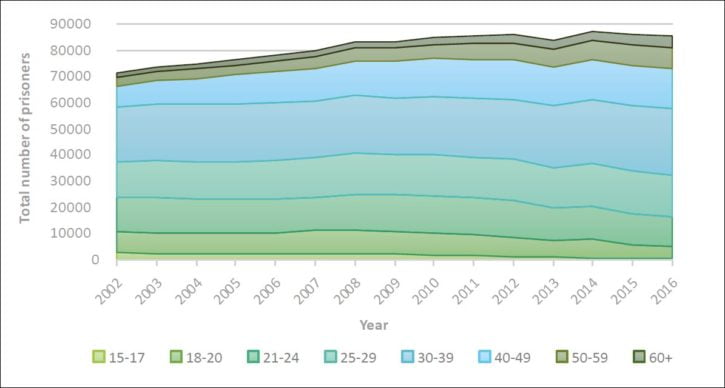Number of older prisoners has tripled in last 15 years
HM Prison and Probation Service needs a national strategy to address the needs of the increasing numbers of elderly prisoners living – and dying – in jail so that they can be managed and cared for more appropriately.
That’s the main recommendation of the Prisons and Probation Ombudsman (PPO) Nigel Newcomen in a report he published today on older prisoners.
The context
One of the most marked changes in prisons in recent years has been the increase in the number of older prisoners. This shift has been driven largely by increased sentence length and more late-in-life prosecutions for historic sex offences. The number of prisoners over 60 has tripled in 15 years and the projections are all upwards, with 14,000 prisoners over 50 predicted by June 2020.
The Care Act of 2014 clarified that local authorities are responsible for assessing the care needs of older prisoners and providing support. This legislation, along with national and international expectations that prisoners should be able to access a level of care equal to that in the community, are positive developments. However, faced with such a rapid increase in older prisoners and without a properly resourced and coordinated strategy for this group, an already stretched prison system is struggling to meet need.
The report reviews PPO investigations into naturally caused deaths of prisoners over 50. It examines 314 investigations between 2013 and 2015 and offers 13 lessons on six areas where recommendations are frequently made following investigations into deaths in custody of older prisoners.

Recommendations
The six areas are healthcare and diagnosis, restraints, end of life care, family involvement, early release and dementia and complex needs. Among those lessons are:
- prisons should ensure that newly arrived prisoners have an appropriate health screen that reviews their medical history and conditions and identifies any outstanding appointments and relevant conditions;
- use of restraints should be proportionate to the actual risk posed by the prisoner, given his or her current health condition;
- prisons should ensure that terminally ill prisoners who require intensive palliative care are treated in a suitable environment;
- prisons should ensure that, with the consent of the prisoner and agreement of the family, trained family liaison officers involve families in end-of-life care and promptly notify them when the prisoner is taken to hospital;
- risk assessments associated with applications for compassionate release should be based on an assessment of actual risk given the prisoner’s current health condition; and
- prisons should ensure that patients with complex health needs have personalised care plans in place.
Nigel Newcomen said:
The challenge to HM Prison and Probation Service is clear: prisons designed for fit, young men must adjust to the largely unplanned roles of care home and even hospice. Increasingly, prison staff are having to manage not just ageing prisoners and their age-related conditions, but also the end of prisoners’ lives and death itself – usually with limited resources and inadequate training.
There has been little strategic grip of this sharp demographic change. Prisons and their healthcare partners have been left to respond in a piecemeal fashion. The inevitable result, illustrated in my review, is variable end of life care for prisoners and a continued inability of many prisons to adjust their security arrangements appropriately to the needs of the seriously ill. I still find too many cases of prisons shackling the terminally ill – even to the point of death.
I have personally seen examples of impressively humane care for the dying by individual staff, as well as glimpses of improved social care and the development of some excellent palliative care. However, I remain astonished that there is still no properly resourced older prisoner strategy. This is something I have called for repeatedly and without which I fear my office will simply continue to expose unacceptable examples of poor care.”
If you’re interested in this subject, please don’t miss Amelia Hill’s (@byAmeliaHill) long read on the subject in today’s Guardian.
All prison posts are kindly sponsored by Prison Consultants Limited who offer a complete service from arrest to release for anyone facing prison and their family. Prison Consultants have no editorial influence on the contents of this site.









2 Responses
I am really interested in looking at this problem, and have ideas to help. The problem for me is simple, who can I share this solution / ideas with ? I try to contact the right people, I am told that Winson Green prison would be a good place to start, but having little knowledge of the “system” and very few contacts, progress is slow.
If anybody reading this can help me find a way through, please let me know.
John Reed 07510 515103 or tutisltd@aol.com
Hi John,
If you are still interested in this area, let me know. I am happy to advise you and collaborate in terms of your ideas and solutions.
All the best,
Raquel
missracpires@hotmail.com